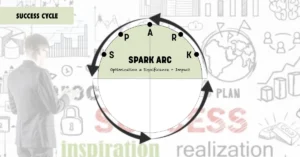
Activity Impact Mastery: Keys to Optimal Performance
Today, I want to talk about what keeps many busy professionals like you up at night. Mainly, the stress caused

Today, I want to talk about what keeps many busy professionals like you up at night. Mainly, the stress caused

Success as we define it today can often be cyclical with highs and lows. Yet we are often told that

Discomfort can be a pain or a springboard for success. When you are uncomfortable you want to change your status.

When you have tons of things to do, you have three choices on how you execute: – Get cracking and

The balancing of home and career is the most common challenge working professionals face. No matter which country you live

Sales is the lifeblood of any business. No matter how good you are at selling, you can get better. Ask
We are currently in week 6 of the Ignite Your SPARK: Transformational Leadership Masterclass. During last week’s session, one of
From Knowledge to Knowing: Choosing to Become ‘Witness’ to Life In this 7-part series, we have been selecting excerpts from
Conquering Your Everest: Building Resilience, One Step at a Time In this 7-part series, we have been selecting excerpts from
